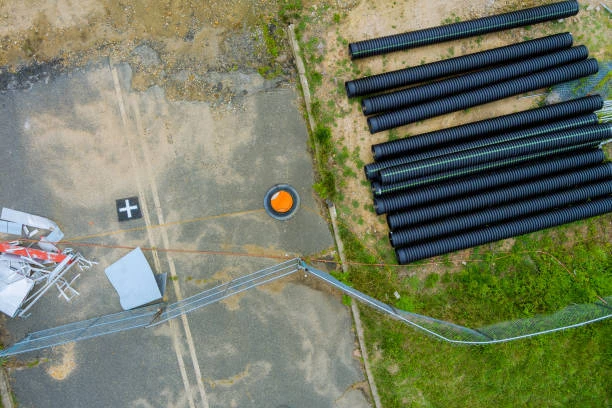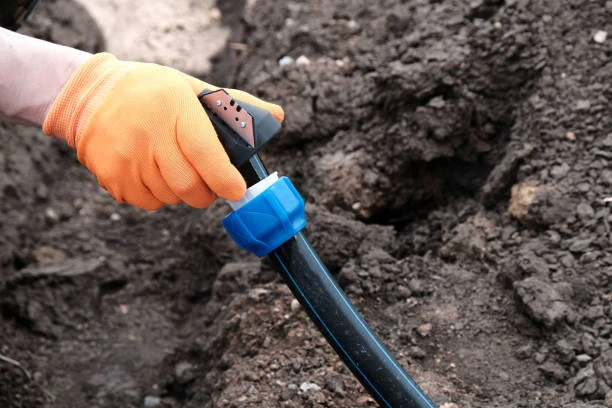Kelantan, a state in Malaysia, is set to open a new factory dedicated to the production of high-density polyethylene HDPE pipe. This initiative aims to tackle the persistent water supply issues that have affected the region for years. In this article, we’ll explore the significance of this new factory, the benefits of HDPE pipes, and how this move could transform the water management landscape in Kelantan.

1. HDPE pipe Introduction to the Water Supply Challenges in Kelantan
Kelantan has faced significant water supply challenges, including inconsistent availability, contamination, and aging infrastructure. These issues have not only disrupted daily life for residents but have also hindered economic growth in the region. The state government is taking proactive steps to address these challenges, and the opening of the new HDPE pipe factory is a critical part of this strategy.
2. HDPE pipe What Are HDPE Pipes?
High-density polyethylene HDPE pipe are known for their durability, flexibility, and resistance to corrosion. They are widely used in water supply systems, irrigation, and drainage due to their ability to withstand high pressures and harsh environmental conditions. The properties of HDPE make it an ideal choice for ensuring a reliable and safe water supply.
3. Benefits of HDPE Pipes for Water Management
3.1 HDPE pipes Durability and Longevity
One of the primary advantages of HDPE pipe is their exceptional durability. They can last for decades, reducing the need for frequent replacements and maintenance. This longevity is especially important in regions like Kelantan, where water infrastructure has been historically underdeveloped.
3.2 HDPE pipes Resistance to Corrosion and Chemicals
Unlike traditional metal pipes, HDPE pipes are resistant to rust, corrosion, and various chemicals. This property ensures that the water supply remains uncontaminated, providing safe drinking water to residents.
3.3 HDPE pipes Cost-Effectiveness
While the initial investment in HDPE pipes may be higher than some alternatives, their long lifespan and lower maintenance costs make them a cost-effective solution in the long run. This is particularly beneficial for local governments looking to maximize their budgets.
4. The Role of the New HDPE Pipe Factory
4.1 HDPE pipes Addressing Local Needs
The new factory in Kelantan will significantly enhance the region’s capacity to produce HDPE pipes locally. This means that water supply projects can be completed more quickly and efficiently, addressing the urgent needs of the community.
4.2HDPE pipe Job Creation and Economic Development
Opening the factory is expected to create jobs for local residents, contributing to economic development in the area. This move not only supports the immediate need for water infrastructure but also fosters long-term economic growth.
4.3 HDPE pipeSustainable Practices
The factory will likely implement sustainable manufacturing practices, aligning with global trends toward environmentally friendly production. This commitment to sustainability will benefit both the local community and the environment.
5. HDPE pipes Government Support and Collaboration
The Kelantan state government is playing a crucial role in the establishment of the HDPE pipe factory. By collaborating with private investors and industry experts, the government aims to ensure that the factory meets the highest standards of quality and efficiency. This partnership is vital for overcoming the historical challenges faced in water management.
6. HDPE pipes Future Prospects for Water Supply in Kelantan
With the opening of the HDPE pipes factory, the future of water supply in Kelantan looks promising. The factory will not only enhance the region’s ability to produce high-quality pipes but will also contribute to improved infrastructure and services.
6.1 HDPE pipes Expansion of Water Supply Projects
The availability of locally produced HDPE pipes will facilitate the expansion of water supply projects across Kelantan. This expansion will enable the state to reach underserved communities and ensure equitable access to clean water.
6.2 HDPE pipes Enhanced Community Well-Being
Improved water supply and infrastructure will have a positive impact on the overall well-being of the community. Access to reliable and clean water is essential for health, education, and economic opportunities.
7. Conclusion
The opening of the HDPE pipe factory in Kelantan marks a significant step towards addressing the longstanding water supply issues in the region. By providing a durable and cost-effective solution for water management, this initiative has the potential to transform the lives of residents and support sustainable development in the area. With the backing of the state government and collaboration with industry players, Kelantan is on the path to a brighter, water-secure future.
FAQs
1. What are the main benefits of HDPE pipes?
HDPE pipes are durable, resistant to corrosion and chemicals, and cost-effective due to their long lifespan and low maintenance requirements.
2. How will the new factory help address water supply issues in Kelantan?
The factory will increase local production of HDPE pipes, enabling faster completion of water supply projects and improving infrastructure.
3. What impact will the factory have on the local economy?
The factory is expected to create jobs and contribute to economic development in Kelantan by providing employment opportunities and supporting local businesses.
4. How does HDPE compare to traditional pipe materials?
HDPE pipes offer superior durability and resistance to corrosion compared to traditional metal pipes, making them a more reliable choice for water supply systems.
5. What role does the government play in the establishment of the factory?
The Kelantan state government is collaborating with private investors and industry experts to ensure the factory meets quality standards and addresses local needs effectively.


















